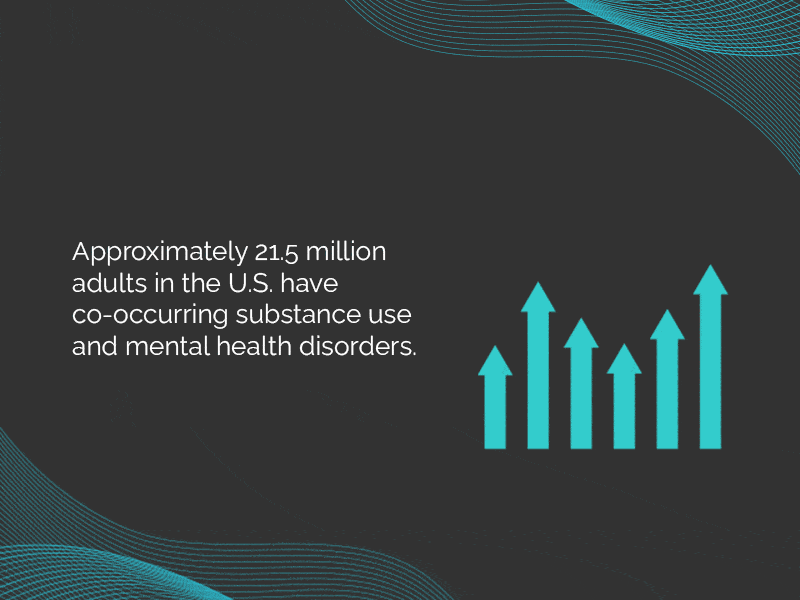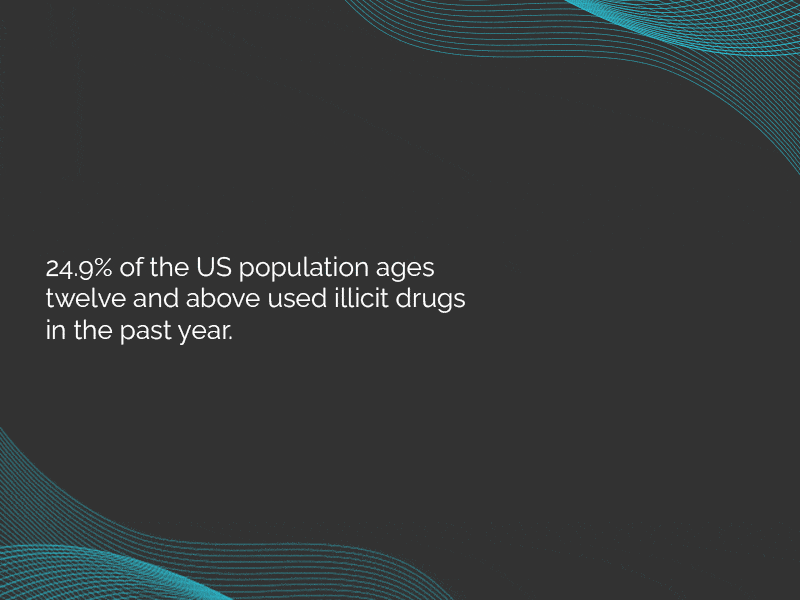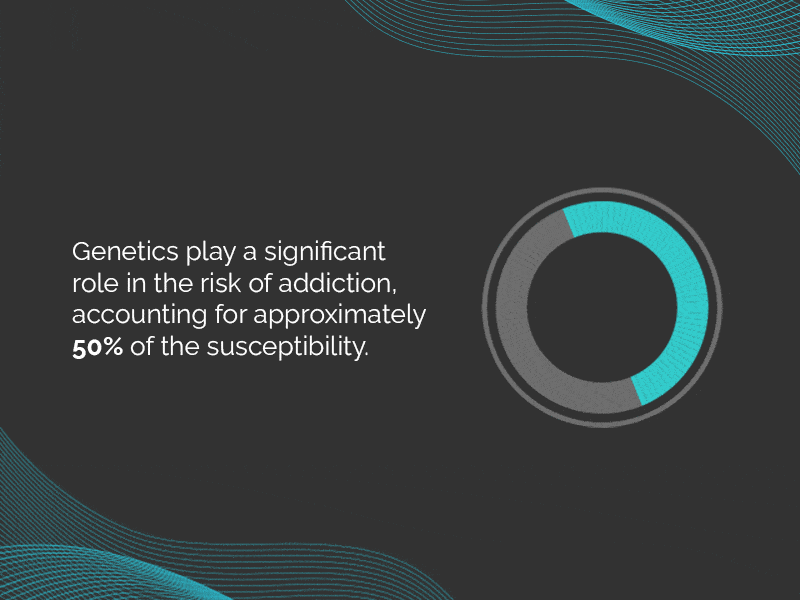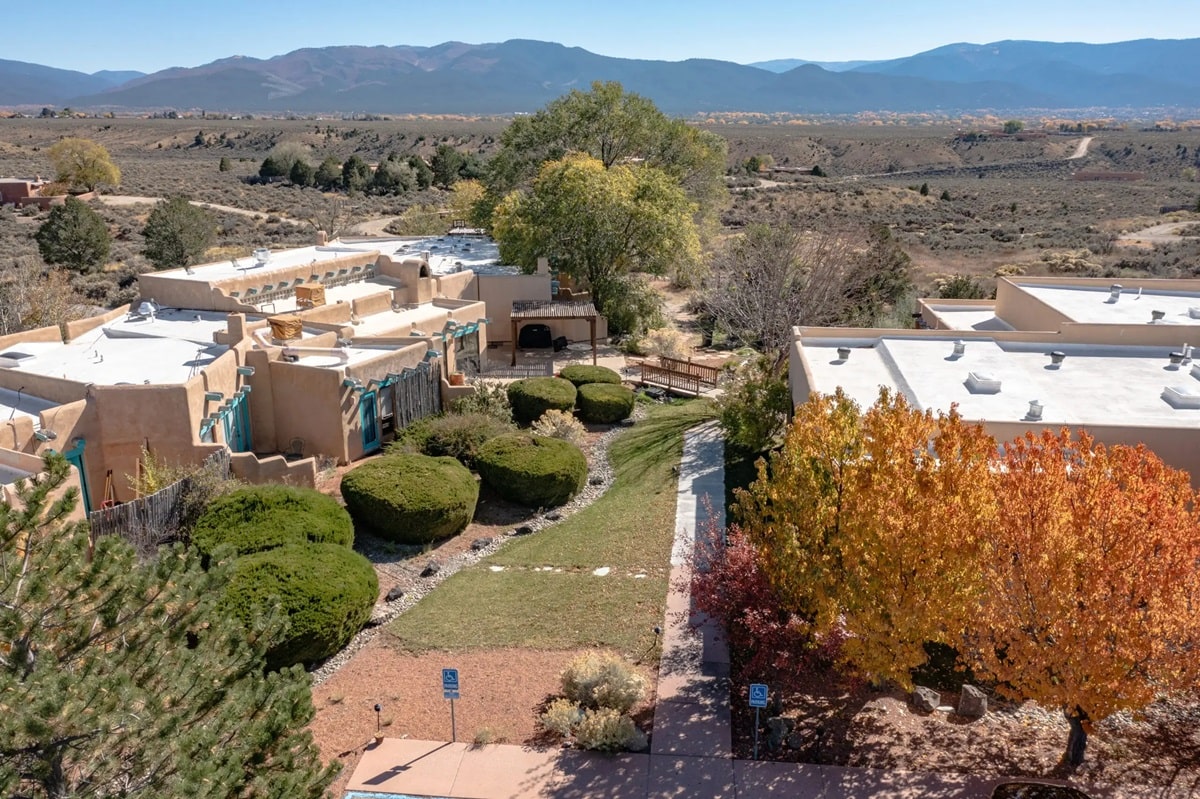From Broken to Whole: How Addiction Recovery Centers Foster Mental Well-being
Are you or a loved one struggling with addiction? Learn how an addiction recovery center like Vista Taos can help you achieve lasting sobriety.
Vista Taos: Whole-Person Addiction Recovery Center
Addictive behaviors can result in physical, emotional, and psychological damage. At Vista Taos Renewal Center, our knowledgeable and compassionate New Mexico team aims to correct this imbalance.
Our addiction recovery center is a serene place of rejuvenation, run by expert staff members who understand the difficulties of addiction.

Spearheading Client-Centered Treatments
We have been transforming lives through client-centered techniques since 1994. Our team of highly trained professionals is licensed and passionate about holistic healing.
Vista Taos guides individuals throughout their custom-fit treatment and recovery plans until they reach their wellness goals. Our secluded addiction recovery center provides a secure and private healing experience. Clients can recover while enjoying the high-quality amenities.
How Vista Taos Approaches Addiction Recovery
Vista Taos implements integrative, evidence-based, and holistic approaches to healing. We focus on the mind, body, and spirit and utilize various addiction treatment strategies backed by strong research.
This enables us to provide proper client-centered support from inquiries to admission to aftercare. We always tailor our approach to the client’s case and health needs.
Understanding Addiction
Addiction is a chronic disease that causes compulsive substance use or behaviors despite harmful consequences.
It involves complex interactions among different factors, including:
- Genetic
- Biological
- Social
- Environmental
How Addiction Impacts Individuals and Their Families
Addiction impacts all aspects of an individual’s life, from physical and mental to behavioral and social. It weakens areas of the brain responsible for impulse control, decision-making, and dopamine production. This contributes to the uncontrollable urge to seek out the substance or behavior, regardless of the adverse effects.
The immediate consequences are often visible in their health deterioration and behavioral changes. These changes can manifest as neglect of personal and professional responsibilities, leading to financial strain, job loss, and social withdrawal.
For families, emotional distress becomes a common experience. This is often due to witnessing the addicted individual’s transformation and struggle. Their unpredictability, such as erratic behavior or even confrontational interactions, can further strain family members’ relationships with the individual.
The pervasive nature of addiction means that recovery is not just a personal journey but a collective effort. It requires support systems that address the needs of both the individual and their loved ones.
This underscores the importance of addiction recovery centers like Vista Taos to provide comprehensive approaches. The most effective treatments involve medical intervention and emotional support.

The Different Types of Addiction
There are two distinct categories of addiction: substance and behavioral. Each has unique characteristics but similar underlying mechanisms involving compulsion, loss of control, and continued engagement despite adverse consequences.
Substance Addiction
Substance addiction refers to the dependency on certain substances, such as alcohol, drugs (prescription or illicit), or nicotine. These substances have a direct chemical impact on the brain that alters mood, perception, and behaviors.
The cycle of addiction is driven by the brain’s reward system, which reinforces the behavior necessary to obtain and consume the substance.
Over time, the body can develop tolerance, requiring higher doses to achieve the same effect. Prolonged substance use also leads to physical dependence, causing withdrawal symptoms when the substance is not used.
The most recent National Survey on Drug Use and Health (NSDUH) revealed that an estimated 24.9% of the US population ages twelve and above used illicit drugs in the past year. It also showed that 17.3% had a substance use disorder.1
Behavioral Addiction
Behavioral addiction, also known as process addiction, involves a compulsion to engage in non-substance-related behaviors that also activate the brain’s reward pathways.
While these behaviors do not involve consuming a psychoactive substance, they can still lead to significant psychological and social problems. People with behavioral addictions experience similar patterns of compulsion, withdrawal symptoms, and a gradual escalation of the activity to achieve the desired effect.
Common examples include:
- Gambling
- Shopping
- Internet use
- Social media
- Eating
Gambling is currently the only non-substance-related disorder acknowledged in the Diagnostic and Statistical Manual of Mental Disorders, Fifth Edition (DSM-5). One study found that 1.29% of the US adult population has a gambling addiction.2
What is Addiction?: An Overview
The Underlying Factors Contributing to Addiction
Addiction does not stem from a single source. Instead, it is the result of complex interactions among biological, psychological, and environmental influences.
Biological Factors
Genetics play a significant role in the risk of addiction, accounting for approximately 50% of the susceptibility. This genetic predisposition influences how substances interact with the brain’s reward systems.3
Other biological factors include:
- Age
- Sex/gender
- Anomalies in the brain’s reward, stress, and self-control circuits
Psychological Factors
Mental health disorders can increase the risk of addiction. This is primarily due to individuals turning to drugs or alcohol as a form of self-medication.
The following mental health disorders often co-occur with substance use:
- Depression
- Anxiety
- Post-traumatic stress disorder (PTSD)
Environmental Factors
An individual’s environment includes a wide range of influences, such as:
- Family
- Friends
- Socioeconomic status
- Exposure to physically or emotionally abusive situations
One major environmental risk factor is early exposure to drug use, either in the family or through peers. Social isolation, chronic stress, and lack of support systems can also drive individuals towards addictive behaviors as a coping mechanism.
How Vista Taos Makes a Difference
Vista Taos is an addiction recovery center that follows a client-centered, holistic treatment philosophy. We provide personalized care focused on healing the whole person. This ensures that each client receives a treatment plan tailored to their needs, background, and recovery goals.
Comprehensive Treatment Programs at Vista Taos
Vista Taos offers comprehensive treatment programs that holistically address the complex nature of addiction. Our approach is designed to support every aspect of the individual—body, mind, and spirit.
Our treatment framework includes several stages: detoxification, primary treatment, and extended care. Each stage addresses the specific needs of our clients throughout their recovery journey.
The Importance of Personalized Care and Holistic Healing Modalities
Personalized care is more than just an initial assessment and customized treatment plan. Our team continually monitors each client’s progress, making adjustments as needed. This is because we understand that everyone responds to treatment differently and heals on their own time.
Holistic healing is fundamental to our addiction recovery center’s approach. It allows us to address not just the physical symptoms of addiction but also the emotional and spiritual dimensions that are critical to a person’s overall well-being.
Personalized and holistic treatment allows for more direct and meaningful interventions that can lead to more effective and lasting recovery outcomes. By treating the whole person and tailoring our approaches to meet individual needs, we ensure our clients have the best possible foundation for long-term success.
Residential Treatment at Vista Taos Addiction Recovery Center
At Vista Taos, our residential treatment program includes detoxification, primary treatment, and extended care.
Detoxification
Detoxification is the process of allowing the body to rid itself of the substances it has become dependent on. This is typically the first step in treating substance addiction and involves managing the acute and potentially dangerous physiological effects of stopping drug use.
Our treatment team provides medical supervision to mitigate withdrawal symptoms, which can range from mild anxiety and discomfort to severe physical and psychological reactions. Detox aims to stabilize the individual safely and prepare them for further treatment and recovery.
Primary Treatment
Our primary treatment is a comprehensive residential program dedicated to healing and recovery from addiction. We provide an immersive environment where individuals receive around-the-clock professional care from our master-level clinicians.
During primary treatment, our clients stay at our addiction recovery center. The program ranges between four and six weeks.
Through assessments and evaluations, our compassionate clinicians develop a personalized treatment plan for each client. This allows for more direct and meaningful interventions that can lead to more effective and lasting recovery.
Therapeutic Modalities
Our approach integrates a variety of therapeutic modalities to address all aspects of addiction—physical, emotional, and spiritual.
Some of these modalities include:
- 12-Step Curriculum and Meetings: This modality is based on a set of guiding principles outlining a course of action for recovery from addiction. The 12 Steps focus on recognizing the problem, seeking help, engaging in self-discovery, making amends for harm done, and helping others with similar problems.
- Individual Therapy: This is a form of therapy in which a single client works one-on-one with a trained therapist in a safe and confidential setting. The focus is on gaining insight into one’s emotions, behaviors, and thoughts and using this understanding to create positive change.
- Group Therapy: In this therapeutic setting, multiple participants share their experiences in a supervised group environment facilitated by a therapist. It helps individuals learn from the experiences of others, receive support, and develop communication skills.
- Experiential Therapy: This therapy involves activities like role-playing, arts and crafts, music, animal care, or other activities to help individuals process accumulated emotions and traumas. It emphasizes the role of experience in learning how to identify and address hidden or subconscious issues.
- Relapse Prevention Education: This educational approach equips individuals with strategies and tools to prevent relapse. It covers recognizing high-risk situations, developing coping mechanisms, and implementing lifestyle changes that support sustained recovery.
- Trauma-Informed Care: This therapeutic modality focuses on the presence of trauma in an individual’s life and its role in their current health and behaviors. It aims to create a treatment setting that is sensitive to trauma history, avoiding re-traumatization and providing a safe, supportive space that facilitates healing.
- Meditation: This practice involves using techniques like mindfulness to train attention and awareness and achieve a mentally clear, emotionally calm, and stable state. Meditation can help manage stress, reduce depression and anxiety, and enhance overall well-being.
- Yoga: Yoga is a physical, mental, and spiritual practice. It involves physical postures, breath control, and meditation to improve physical flexibility, reduce stress, and promote mental clarity.
What is Group Therapy?
Extended Care
Our extended care program is designed to bridge the gap between inpatient treatment and independent living. It provides daily structured activities and routines that help solidify the skills and habits learned during primary treatment.
We emphasize practical skills such as financial management, job readiness, and social relationship building. By continuing to offer support, guidance, and education, we help individuals make a seamless transition to life outside the addiction recovery center.
Fostering a Supportive and Nurturing Environment at Vista Taos
We understand that recovery from addiction is a deeply personal journey that requires a compassionate environment where individuals can heal and grow.
Here’s how our addiction recovery center fosters a supportive and nurturing environment at Vista Taos:
- Personalized Attention: Our commitment to keeping our program size small ensures that each client receives individualized care and attention.
- Skilled and Compassionate Staff: Our team is composed of highly trained professionals who are not only experts in their fields but also deeply empathetic individuals.
- Community and Connection: Building a community among clients is a priority. Group therapy sessions and shared activities foster a sense of belonging and support, enabling clients to share their experiences and challenges in a safe and non-judgmental setting.
- Peaceful and Healing Physical Environment: Set in the serene and picturesque Taos, New Mexico, our addiction recovery center provides a calming backdrop that supports the healing process.
- Continuous Support and Aftercare: Recognizing that recovery is an ongoing process, we provide extensive aftercare support to help clients transition smoothly into their daily lives post-treatment.

Understanding the Essentials of Dual Diagnosis Treatment
Dual diagnosis, also known as comorbidity or co-occurring disorders, is when an individual has a substance use and mental health disorder simultaneously. Approximately 21.5 million adults in the U.S. have co-occurring substance use and mental health disorders.4
Treating dual diagnosis effectively is crucial because each condition can exacerbate the symptoms and severity of the other.
Research shows that treating both mental health and substance use disorders together leads to better outcomes. Primary results include lower rates of relapse, improved psychiatric symptoms, and higher levels of satisfaction with life.5
Without addressing both conditions, patients may continue to cycle through treatment for one condition while still struggling with the other. This can lead to relapse and a sense of failure that can exacerbate mental health symptoms.6
Our Integrated Dual Diagnosis Treatment Approach
Recognizing the intricate link between substance use and mental health disorders, we treat both aspects concurrently. This ensures that one condition does not hinder the recovery of the other.
By conducting thorough assessments at the outset, our clinicians gain a deep understanding of both the addiction and mental health challenges each client is facing. This assessment provides valuable insight to develop a personalized treatment plan that addresses both disorders with equal emphasis.
Therapeutic Modalities for Dual Diagnosis
We incorporate a range of therapeutic modalities that are effective in treating co-occurring disorders. Some examples include:
- Cognitive Behavioral Therapy (CBT): Helps modify detrimental thinking and behavior patterns.
- Dialectical Behavior Therapy (DBT): Encourages living in the present moment and helps with emotion regulation.
- Motivational Interviewing (MI): Enhances personal motivation toward recovery.
- Individual and Group Therapy: Provides support and space for clients to explore the interactions between their mental health and substance use.
- Medication Management: Manages withdrawal symptoms, treat psychiatric conditions, or both.
- Psychoeducation: Helps clients understand their co-occurring disorders and manage their conditions effectively.
- Relapse Prevention: Addresses triggers and stressors that could impact both mental health and substance use.
How Does CBT Work?
Life After Treatment
Aftercare is the next step after the initial, intensive phase of addiction treatment. It is designed to reinforce the skills learned during treatment and help individuals maintain sobriety in their daily lives.
The Importance of Aftercare Planning and Support
Aftercare offers ongoing support through therapy, support groups, and monitoring. These resources are essential for reinforcing the coping strategies and healthy habits developed during primary treatment.
Aftercare planning and support significantly reduce the risk of relapse. They ensure that individuals have access to resources and a community that supports their long-term recovery goals.
Vista Taos Alumni Group and Ongoing Support Resources
Our Vista Taos Alumni Group is dedicated to supporting our graduates as they navigate the ongoing journey of sobriety in their personal, family, and community lives. The Alumni Group offers a variety of enriching activities designed to maintain the connection and momentum built during treatment.
Our alumni benefit from specialized events, resources, and social gatherings that not only help maintain sobriety but also enrich life experiences. These activities are fun and built around the idea of growing a supportive community among those who have shared the transformative experience of recovery.
By staying engaged through our social media platforms and special events, alumni can continue to learn, share, and thrive in a sober lifestyle.
We also offer ongoing support resources, such as individual therapy, weekly peer support groups, and work, volunteer, and education opportunities.
Tips for Maintaining Sobriety and Mental Wellness Post-treatment
Maintaining sobriety and mental wellness after treatment may seem difficult. However, dedication, motivation, and the following tips can help:
- Develop a strong support network
- Continue therapy
- Schedule regular check-ups with a healthcare provider
- Stay healthy, e.g., exercising regularly, maintaining a balanced diet, and getting adequate sleep
- Practice mindfulness and relaxation techniques
- Develop and maintain a stable routine
- Avoid high-risk situations

How to Get Started with Vista Taos Addiction Recovery Center
Your journey to recovery and renewal starts with Vista Taos.
The Admissions Process
The admission process for Vista Taos is streamlined to ensure ease and clarity for prospective clients and their families, outlined in three main steps:
- Phone Consultation: The process begins with a complimentary phone consultation. You can initiate this by calling 575-586-5078 or filling out an online form. An admissions specialist will conduct a confidential assessment to determine the most appropriate treatment options tailored to your needs.
- Travel to Vista Taos: Once the initial consultation is complete and you decide to proceed with treatment at Vista Taos, the next step is to arrange travel to Taos, New Mexico. Our addiction recovery center can assist in planning your travel, offering complimentary pickup from airports in Albuquerque and Santa Fe or other locations within a 2.5-hour drive of Taos.
- Upon Arrival at Vista Taos: Upon arriving at Vista Taos, you will be greeted by our admissions staff to complete your admission paperwork. You will also meet with our medical and counseling staff to become acquainted with the people, the facility, and the treatment schedule.
In-Network Accepted Insurance
Vista Taos accepts the following insurance providers:
- Anthem
- Blue Cross Blue Shield
- Cigna/Evernorth
- NM TrueHealth
- Friday Health Plan
- Magellan Healthcare
- Presbyterian
- United Healthcare
- Multiplan
Begin a Healthier, More Joyful Life Now
For more information or to schedule a consultation, please do not hesitate to contact us. Our highly trained and dedicated staff is always ready to accommodate your questions or schedule an appointment when you are ready to begin your new balanced life.

Start Your Healing Journey with Vista Taos Today
Vista Taos Renewal Center is committed to providing research-based, holistic treatment. We are here to support you every step toward healing and a renewed life.
Experience a Life of Sobriety and Wellness
Taking the first step can be the most challenging part, but it is also the most crucial. We invite you to reach out to us for a confidential phone consultation, where we can explore treatment options and plan your journey to recovery.
Whether seeking help for yourself or someone you care about, Vista Taos provides a path to sobriety filled with support, healing, and hope. Contact our New Mexico team today, and let us help you reclaim your life and step into a future rich with opportunity and personal fulfillment.
Resources
- https://www.samhsa.gov/data/report/2022-nsduh-annual-national-report
- https://link.springer.com/article/10.1007/s10899-022-10180-0
- https://www.ncbi.nlm.nih.gov/pmc/articles/PMC8477224/
- https://www.samhsa.gov/data/sites/default/files/reports/rpt42731/2022-nsduh-main-highlights.pdf
- https://www.ncbi.nlm.nih.gov/pmc/articles/PMC3753025/
- https://www.ncbi.nlm.nih.gov/pmc/articles/PMC6526999/
Table of Contents
Ready to Renew Your Life and Well-Being?
Reach out to Vista Taos Renewal Center today and let us guide you toward sustainable recovery. We will help you heal from the addictions and substance use challenges that hinder you from leading your most fulfilled life through personalized, whole-person treatment.




